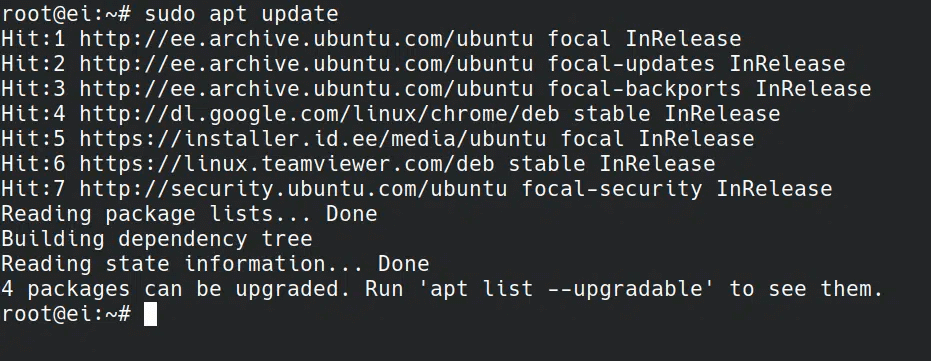What is Smart Contract Development [Complete Guide]
![What is Smart Contract Development [Complete Guide]](/v3/img/containers/blog_main/cloud_computing.jpg/5982b1adf933064618994915989c8491/cloud_computing.jpg?id=1739046670)
Smart contracts bring efficiency, transparency, security, cost-effectiveness, and facilitation of innovative solutions, revolutionizing traditional contract systems by reshaping how we execute and enforce agreements, underscoring the importance of smart contract development.
This guide will define smart contract development, highlight smart contract use cases, benefits, development processes, tools, and costs, and bring some examples of smart contract development services and companies.
#What is a smart contract?
A smart contract, also known as an SC, is a digital contract that operates on blockchain technology and utilizes a decentralized and distributed ledger system (DTS). By automatically executing specified actions once predetermined conditions are met, smart contracts serve as digital protocols that facilitate, verify, or carry out the negotiation or fulfillment of an agreement.
Smart contracts, simply explained. Source: SimplyExplained YouTube channel.
Whereas traditional contracts that rely on intermediaries, such as lawyers or banks, to validate terms, smart contracts employ the code that automatically enforces the execution. Since the transaction occurs in the digital realm once they fulfill the set terms, there is no need for third parties. As such, the operation is transparent, secure, tamper-resistant, and immutable.
For example, in the case of a rental agreement, when the tenant transfers the rent amount to the smart contract's address, it autonomously triggers the transfer of the digital keys or access code to the property, ensuring immediate and automatic enforcement without the need for a third party.
#Smart contract use cases and applications
Given their mechanisms, smart contracts ensure the ultimate automation and optimization of contractual processes, setting up a trustless, transparent, and efficient framework across various industries.
Smart contract use cases include the following:
-
Supply chain: Tracking inventory, verifying authenticity, and triggering payments upon delivery;
-
Finance: Loan issuance, escrow services, or insurance payouts;
-
Real estate: Title transfers and payment upon completion of contractual obligations;
-
ICOs: Defining the terms of token distribution, managing contributions, and ensuring investment process transparency in token offerings.
#Benefits of smart contracts
Smart contracts provide benefits that bring traditional contractual agreements to a new, more convenient, and efficient level. Benefits of smart contracts include:
-
Transparency: Every operation is recorded on an immutable ledger and is visible to all participants, promoting trust and accountability among involved parties;
-
Security: Using cryptographic principles and DLT's distributed nature, smart contracts provide robust security. The invariability of blockchain prevents unauthorized changes, reducing the risk of fraud, manipulation, or hacking. In digital assets, transparency and integrity in cryptocurrency prices, like Bitcoin or Floki Inu price smart contracts play a significant role in ensuring secure and tamper-resistant transactions;
-
Efficiency: Smart contracts eliminate the need for intermediaries and streamline processes while significantly reducing transaction times and operational costs;
-
Cost reduction: By removing third parties and automating processes, smart contracts promote cost savings. They nullify fees associated with mediators, paperwork, and manual verification, making transactions more affordable.
-
Trustless transactions: Smart contracts operate on predetermined rules, ensuring that the agreed-upon terms are met without the need to trust an intermediary or counterparty. The code enforces the covenant, reducing the risk of misunderstandings or breaches.
Set up your Web3 server in minutes
Optimize cost and performance with custom or pre-built dedicated bare metal servers for blockchain workloads. High uptime, instant 24/7 support, pay in crypto.
#DApp vs smart contract
DApp vs smart contract are two separate things. DApps use smart contracts to operate, ensuring infrastructure and providing the logic and rulers necessary for autonomous operation without centralized control. Smart contracts are fundamental to the functionality, security, and autonomy of DApps.
Smart contracts also enable the creation, issue, and management of tokens used within DApps to facilitate crowdfunding, voting, or governance procedures within dispersed networks. For example, voting mechanisms based on token ownership allow users to participate in decision-making processes without relying on a central authority.
Moreover, smart contracts within DApps can leverage oracles to access real-world data, enabling functionalities like price feeds, weather information, or any external information required for decision-making.
Unlock the full potential of your projects with Cherry Servers Web3 Infrastructure: enterprise-grade blockchain cloud infrastructure with customizable hardware and free 24/7 technical support. Learn more here!
#What is smart contract development?
Smart contract development involves the process of designing, coding, testing, and deploying self-executing contracts on a distributed ledger technology (DLT) network. It encompasses creating and implementing the logic, rules, and conditions that govern these contracts, enabling them to execute agreements autonomously without human intervention.
How to code your first Ethereum smart contract. Source: Dapp University YouTube channel.
For organizations seeking to undertake projects involving smart contracts within a DLT network, considering skilled Drupal developers for hire is crucial to ensure seamless integration within your web development endeavors. Now, let’s go through the typical smart contract development process.
#Smart contract development process
 Smart contract development process. Source: Doug Crescenzi, medium.com
Smart contract development process. Source: Doug Crescenzi, medium.com
The smart contract development process involves preparation and defining requirements, designing, coding, testing, and deploying self-executing contracts on a blockchain platform. We’ve described each stage in more detail below.
A typical smart contract development process covers the following:
Defining the requirements
The development team works closely with stakeholders to understand the objectives, requirements, and desired functionalities, including conducting technical research and defining size and scope.
Architecture and design
Based on the requirements, the development team designs the smart contract architecture, including data structures, functions, on-chain vs. off-chain, and storage, to ensure everything aligns with objectives.
Implementation and coding the contract logic
Developers use programming languages, such as Solidity (specific to different DLT platforms), to write the smart contract logic. This code defines the terms, conditions, and actions based on predefined triggers or inputs. Just like within other software development teams, developers might use agile scrum practices for implementation.
Security audit and testing
Once developers have written the code, they simulate various scenarios to ensure the smart contract behaves as intended and doesn't have vulnerabilities, bugs, or logical errors that could compromise its functionality or security. This includes unit testing (testing individual functions), integration testing (testing interactions with other contracts or systems), and security audits.
Deploying to blockchain and monitoring
The smart contract is applied to the DLT network. This process involves assigning an address to the contract, which makes it accessible to parties interacting with it. For organizations seeking seamless integration of blockchain solutions, partnering with experts in digital product engineering services is crucial to ensure smart contracts' successful deployment and functionality.
Check how the blockchain infrastructure-as-a-service (BIaaS) platform Zeeve leveraged Cherry Servers' robust bare metal servers with hardware control to streamline their blockchain-related operations.
Read their success story here
#Smart contract development tools and frameworks
Like other development processes, smart contract development relies on various tools and technologies specifically tailored to create, test, deploy, and manage covenants within DLT ecosystems. These smart contract development tools are for standardizing coding practices, security analysis and vulnerability detection, automation and integration capabilities, and simulation and debugging tools.
For example, development frameworks and tools such as Remix, HardHat, Truffle, dapp.tools, Foundry, and Brownie streamline the development process by providing essential functionalities for writing, testing, and deploying smart contracts.
 Smart contract example for a bending machine logic, Solidity. Source: Ethereum.org
Smart contract example for a bending machine logic, Solidity. Source: Ethereum.org
#Smart contract development platforms
DLT platforms create robust ecosystems for smart contract development. The two most popular smart contract development platforms in this field are Ethereum and Binance Smart Chain (BSC), which are used for various applications and are widely applied in the DeFi sector.
Ethereum stands out for its extensive developer community and the ultimate flexibility. BSC boasts faster transactions and lower fees while being compatible with Ethereum-based projects. Cardano, Polkadot, Avalanche, and Solana are also gaining pace, offering scalability, security, and reasonable operation costs.
 Screenshot of Remix IDE tool. Source: remix.ethereum.org
Screenshot of Remix IDE tool. Source: remix.ethereum.org
#Smart contract development best practices
To ensure the security, reliability, and functionality of newly developed Web3-powered smart contracts within the blockchain environment, developers should stick to the best practices and coding standards such as:
- Adhering to security rules: Following Solidity rules and security recommendations to write secure and efficient code;
- Reviewing code: Enabling code reviews and peer checks to detect any possible errors, inconsistencies, and issues before they grow into serious problems or bugs;
- Using libraries: Relying on well-audited and trusted libraries like OpenZeppelin to leverage tested and secure code for critical functionalities;
- Unit tests: Creating comprehensive unit tests to evaluate each function and component of the smart contract in isolation to verify expected behavior;
- Audits: Conducting audits before deployment to enhance overall security;
- Keeping up to date: Keeping up with the latest security trends, updates, and vulnerabilities in the DLT space;
- Updating: Regularly updating contracts to patch known vulnerabilities.
Speaking of vulnerabilities, the most common of them to be observed and addressed during and after the development process include:
- Reentrancy attacks: Implement the "checks-effects-interactions" pattern to ensure state changes occur before any external calls. Use withdrawal patterns to manage funds securely;
- Integer overflow/underflow: Refer to safe math libraries to prevent arithmetic overflow or underflow issues in mathematical operations;
- Unchecked external calls: Validate external inputs and contract addresses to prevent unexpected behaviors from untrusted covenants. Apply checks to ensure functions execute safely;
- Authorization and access control: Implement access control mechanisms like role-based permissions to restrict access to critical functions or sensitive data;
- Front-running attacks: Use cryptographic techniques or commit-reveal schemes to avert these attacks and ensure fair transaction execution.
#Smart contract development services
Smart contract development services refer to the professional offerings provided by individuals or companies specializing in creating, coding, testing, and deploying smart contracts on blockchain networks. Businesses can choose staff augmentation vs outsourcing to decide whether they need in-house blockchain expertise or external development teams for their projects. In cases where internal resources are limited, choosing to outsource software development can provide access to experienced professionals who specialize in smart contract creation, offering both quality and security.
Some examples of smart contract development services include:
- Smart contract design: Experts help design smart contracts' architecture, structure, and functionality based on specific business requirements;
- Smart contract coding: A service where developers write the code for smart contracts using programming languages like Solidity or Vyper;
- Testing and debugging: Smart contract testing is conducted to identify and resolve any issues, ensuring the contracts function as intended and are secure;
- Deployment and integration: Smart contracts are deployed onto the appropriate blockchain network and integrated with the desired decentralized applications (DApps) or systems;
- Security audits: Comprehensive security audit services to identify vulnerabilities or weaknesses in smart contracts;
- Upgrades and maintenance: Smart contract development services may also include ongoing maintenance, updates, and upgrades to ensure the contracts remain compatible with evolving technologies and requirements;
- Consulting: Consultants can provide expertise on smart contract development best practices, industry standards, and regulatory compliance.
#Smart contract development companies
Smart contract development companies might offer a full range of end-to-end blockchain solutions or focus on one specific service. Fintech software development services frequently intersect with blockchain offerings, enabling secure financial transactions and enhancing automation through smart contracts.As per Social Capital Market's report, blockchain’s market valuation will reach approximately $56.7 billion by 2026. Established software development companies have also added blockchain solutions to their services.
For example, while MythX specializes in smart contract security for Ethereum, market-leading ConsenSys or Chainyard offers end-to-end blockchain solutions, including smart contract development. Traditional software companies like Cubix have added blockchain solutions, including smart contract development, to their services.
It’s crucial to note that as the space is very new, you should always do sufficient research to ensure you are choosing a high-quality and reputable company.
#Smart contract development cost
Smart contract development cost can vary based on project complexity and requirements, such as development time, developer experience, platform or blockchain technology used, and additional services, but estimated costs can range from $500 to $5,000.
Skilled developers and established service providers will most likely charge higher rates, and security audits and assessments add to the cost. Additional services like consulting and maintenance can accrue extra charges.
For example, when you deploy your smart contract on Ethereum, the main factors that affect the smart contract development cost are:
- The Ethereum price;
- The size of the compiled contract (in bytes);
- The current gas price on the Ethereum network.
You can use a contract deployment cost calculator to get an estimate, but the best thing to do is to consult a few smart contract development companies who can evaluate your project and its cost.
StableLab Saves ~35% in Hosting Costs with Cherry Servers
Read how StableLab, a leader in decentralized governance, cut hosting costs by ~35% and boosted uptime to nearly 100% with Cherry Servers' high-performance dedicated bare metal.
#Smart contract development challenges
Despite its increasing adoption, smart contract development remains more mysterious to many developers due to its unique design and applications. While they can automate processes and reduce transaction costs, there are also significant challenges to address for a more widespread adoption.
Smart contract development challenges include:
- Security and privacy: Smart contracts are open-source and vulnerable to hacks and malicious activities. Solutions include private blockchain environments, increased use of cryptography, and hybrid data storage options;
- Legal challenges: The need to comply with different countries’ laws and regulations, and changes in laws or mutual agreements may require the creation of new contracts;
- Data privacy: Different regulations and the need for legal understanding of coding;
- Oracles: Oracles are tools to provide data to smart contracts from off-chain sources to the blockchain, which introduces vulnerability as hacked oracles can manipulate data. Solutions include policies to handle potential failures of oracle providers;
- Lack of skilled developers: Usability challenges can arise from the lack of specialized skills required for smart contract development, including knowledge of cryptography and non-traditional programming languages like Solidity;
- Scalability: Blockchain networks need enhancements in speed, security, and accessibility to improve the efficiency of smart contracts, as their transaction processing capabilities are limited compared to traditional systems.
#How to learn smart contract development?
Learning smart contract development requires a slightly different approach to traditional development due to differences in the underlying technology and programming languages used and because the space continuously evolves.
Aspiring smart contract developers should be prepared to build a strong foundation through education, hands-on experience, blockchain community engagement, exploring various tools and resources, and a commitment to continuous learning. Plus, this could prepare you for a rewarding career in this promising field.
#To conclude
Smart contract development stands at the forefront of blockchain innovation, demonstrating immense transformative potential across industries. Even though smart contracts come with challenges, their potential for development and widespread adoption is massive, and thanks to continuous research, these gaps are closing.
Starting at just $3.24 / month, get virtual servers with top-tier performance.



